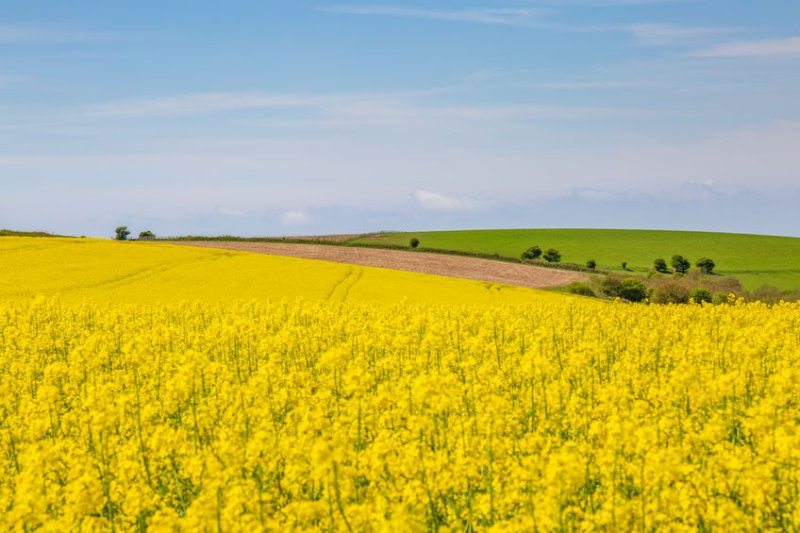
Farmers have raised concerns that the UK could be edging closer to losing the domestic oilseed rape crop if an effective alternative to neonicotinoids is not in place soon.
The National Farmers Union is seeking urgent discussions with the government on the future of British oilseed rape.
The valuable crop is a key ingredient for many products, from rapeseed oil and margarines to mayonnaise and salad dressings.
It is also an important break crop in the UK’s arable rotation, helping to increase organic matter in soils and providing a key source of sustenance for pollinators.
However, the ban of neonicotinoids has meant growers can no longer control cabbage stem flea beetle populations, which are decimating the OSR crop across the country.
The pesticide ban, covering all outdoor crops in the EU, was agreed by the European Commission in 2018 as a move to become more environmentally friendly.
Concerned with the ban's consequences on food production, the NFU is now urging Defra to provide support for growers until an effective alternative to neonics is achieved.
NFU combinable crops board chairman, Matt Culley said the UK is going through a turbulent time with the Covid-19 crisis, and farmers are doing 'all they can' to produce food.
The union has heard from OSR growers across the country that the risk of losing the crop is becoming too great, and many plan to stop planting it at all.
“Without government support, we could see domestic production dry up which would leave us with no choice but to import these products from other countries," Mr Culley said, adding that other countries may still use the very neonics which are banned in the UK.
“A more joined up approach from Defra and the farming industry is needed if we are to find a way to protect the future of OSR, and more specifically, to protect it from cabbage stem flea beetle."
In his first address as prime minister, Boris Johnson highlighted that the government would support the development of new plant breeding techniques, a move welcomed by industry bodies as a step forward for farmers in building crop resilience.
But Mr Culley said it was 'absolutely crucial' that a 'long term, sustainable solution' was found by the government as 'quickly as possible'.
“Farmers need to know that short term financial support will be available to mitigate the risks of growing OSR," he added.
